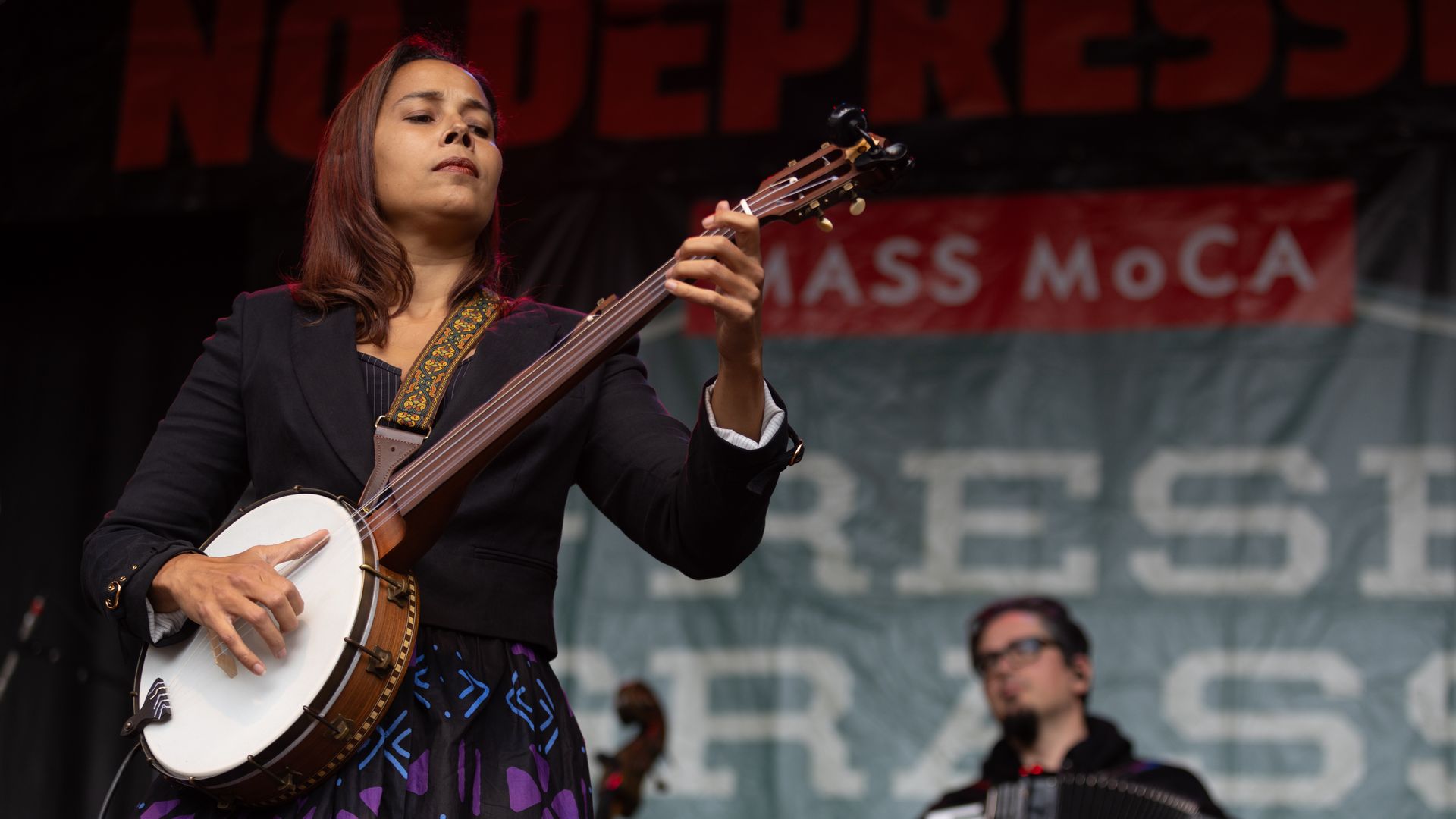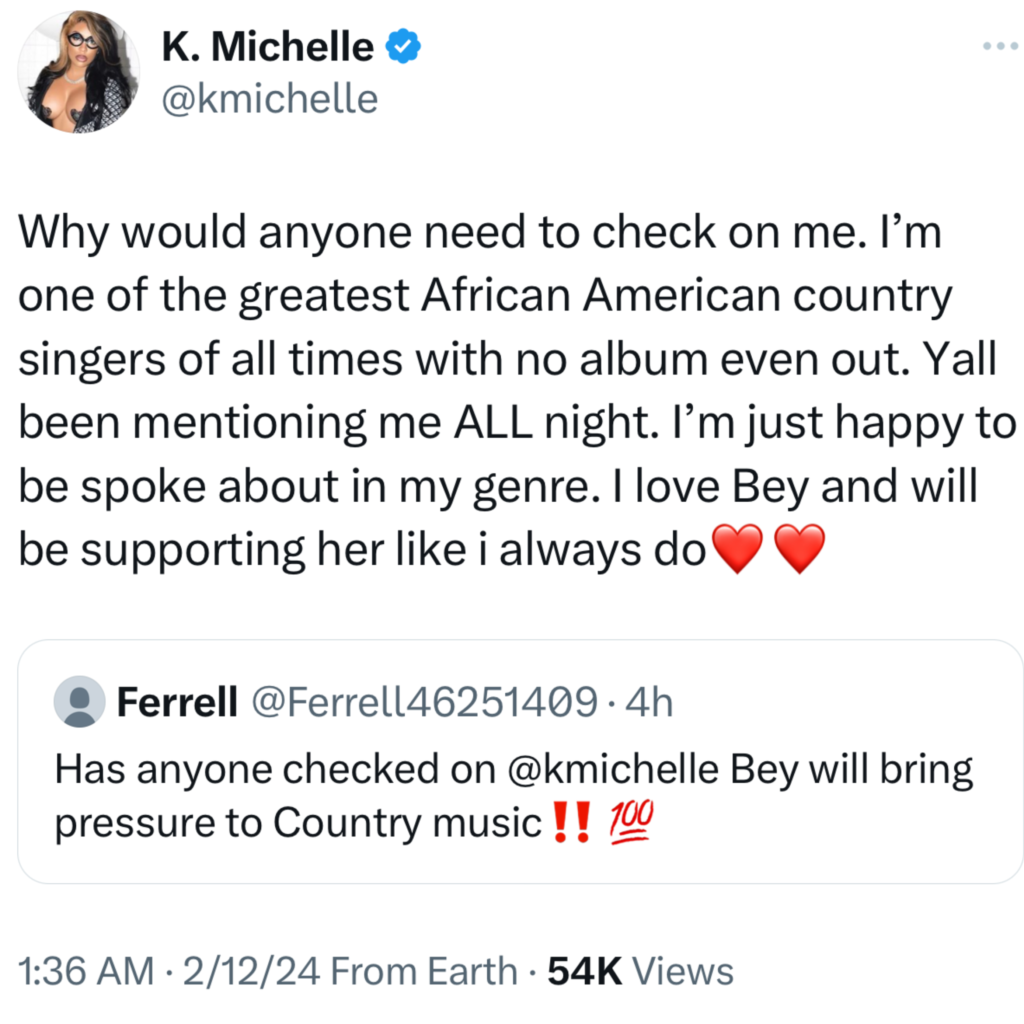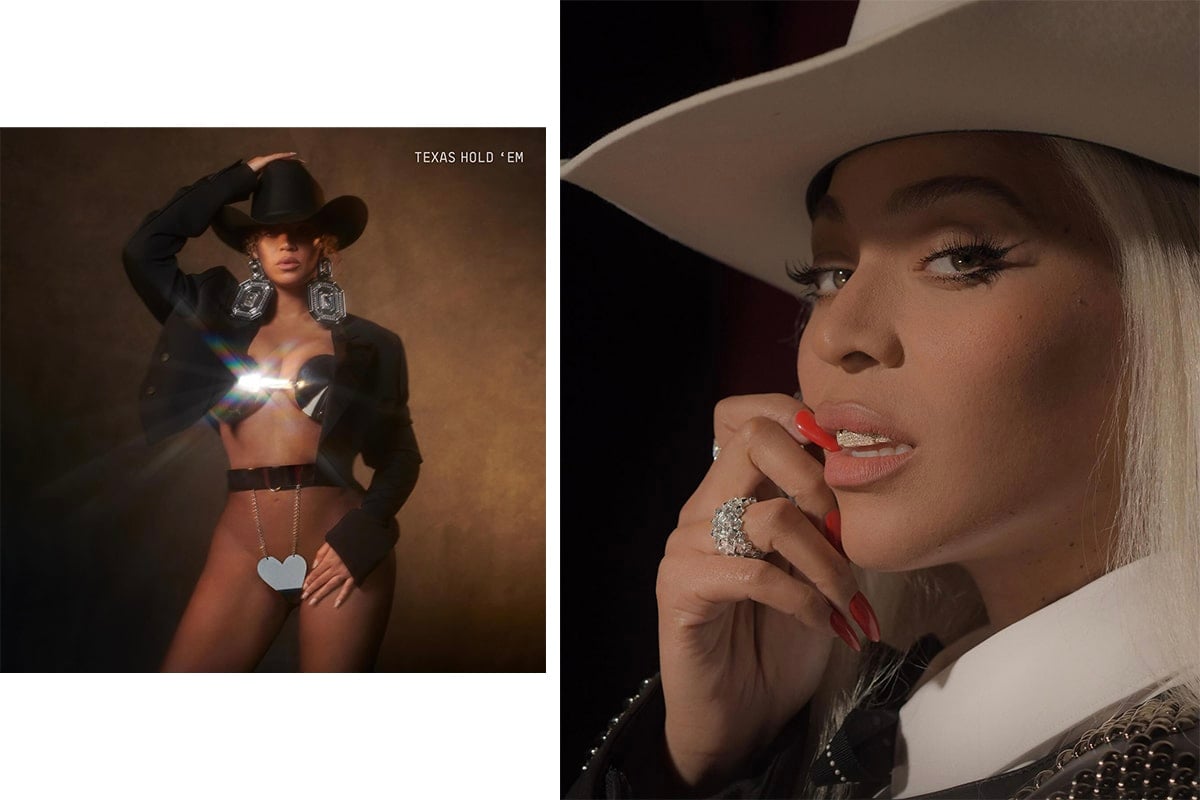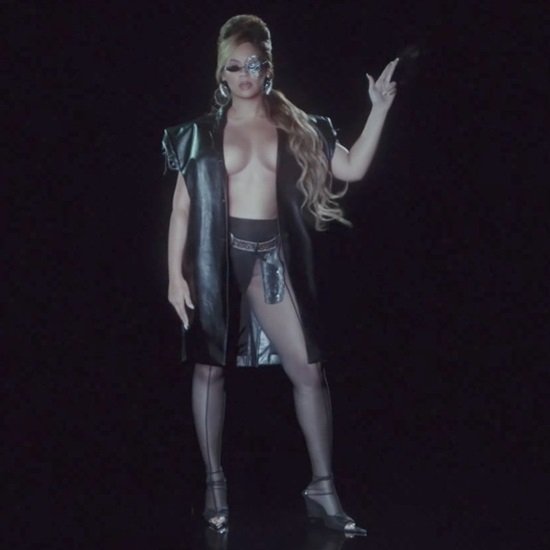The recent controversy surrounding an Oklahoma radio station’s refusal to play Beyonce’s hit song “Texas Hold’Em” has sparked outrage and accusations of racism.
The station allegedly stated that they do not play “her music” here, leading to accusations of discrimination, despite Bey being from Texas, and talking about her home State.
.
This incident highlights a larger issue within the music industry, particularly in the country genre. Despite its roots in African American culture, country music has often been associated with white artists and listeners. However, the truth is that much of what we love about country music comes from people of color.
This aspect of the instrument’s history, which intertwines with themes of struggle and endurance, warrants a thorough and transparent exploration, like the Banjo.
The banjo’s origins are deeply rooted in the creative expressions of African American communities, serving as a tool for solace and resilience amidst severe trials and tribulations.
This complex and often dark history needs to be revisited and openly discussed. you hear it loud and proud by North Carolina native Rhiannon Giddens. 
Historically, the first string bands in the United States were comprised of enslaved people, who played a significant role in shaping the genre.
Black artists have always been a part of country music, and what we now call country music is essentially an East Coast picking style of the blues.
The commercialization of music has led to the division and marketing of different genres to specific groups of people. Country music was marketed as “hillbilly music” for white audiences, while music made by Black artists was labeled as “race records.” and the “sambo” and black face were birthed.
This segregation within the industry has persisted over time, with those in positions of power upholding this system.
Despite these barriers, Black artists have managed to succeed in the country music industry, often against the odds. It is important to acknowledge the contributions of Black artists and to revise the historical narrative surrounding country music.

During the much-anticipated Super Bowl commercial break, Beyoncé took the world by surprise by unveiling snippets of two new country songs, signaling an exciting new direction in her illustrious career.
These previews, each a masterful blend of her iconic sound with the heartfelt storytelling of country music, sparked immediate buzz and speculation.
Fans and critics alike were captivated by the unexpected genre shift, eagerly discussing the potential impact of Beyoncé’s powerful presence in the country music scene.
This bold move not only showcases her versatility as an artist but also promises to bridge musical worlds, further solidifying her status as a boundary-breaking icon.
HOWEVER…
One outlet initially had her song as Pop, and was corrected and reposted as Country, some anti-Bee Hivers said that that she is doing this to win AOTY in a new genre, and others just watched in sheer amazingment!
In the ever-evolving landscape of the music industry, a story unfolds that speaks to the heart of unity and support among Black artists.
Amidst the swirling currents of competition and the harsh spotlight, a movement emerges, championed by those who recognize the importance of solidarity over rivalry.
The story begins with a contentious moment on social media, where a fan’s comment to K. Michelle about Beyoncé venturing into country music sparks a debate.
The comment, aimed to stir the pot, suggested Beyoncé’s entry into the genre would overshadow K. Michelle’s efforts. However, this moment of potential division becomes a catalyst for change.


Azealia Banks, known for her straightforward comments, initially adds fuel to the fire with her skepticism about Beyoncé’s Texas Hold’em and Country crossover.
Yet, the narrative takes an unexpected turn towards unity. The artists and their fans begin to see this not as a moment of conflict but as a call to come together.
In this revised storyline, K. Michelle responds not with defensiveness but with openness, recognizing Beyoncé’s move into country music not as a threat but as an opportunity that could pave the way for more Black artists in a genre where they have historically been underrepresented. Azealia Banks, rethinking the divisive nature of her comments, shifts her stance, acknowledging the importance of support over criticism, especially in spaces where Black artists are making bold moves.
LaSean S

The community rallies around this principle, understanding the harmful effects of pitting artists against each other. They recall the competitive nature of the rap game, where rivalry often overshadows camaraderie, and vow not to replicate that environment as artists explore and expand into new genres.
Social media, once a battlefield of words, transforms into a platform of encouragement and solidarity. Fans and fellow artists alike share messages of support, highlighting the significance of unity in facing industry challenges and societal barriers.
They recognize that when one artist breaks new ground, it is a win for all, paving the way for future generations to explore, create, and succeed without boundaries. With Bey, it;s Texas roots, Beyoncé wings: soaring high, inspiring dreams.
Furthermore, the situation with the Oklahoma radio station underscores the ongoing challenges of racial discrimination in the music sector.
People are forgetting that Bey is Country, she is all the way Texas, remember her verse, her ma’ Louisiana, her daddy Alabama, you mix that Negro with that Creole, you get a Texas Bamma…it doesn’t get more Country than that!
It highlights the imperative need for the industry to embrace and champion diversity and inclusivity, guaranteeing that artists from all walks of life are afforded equitable chances and acknowledgment for their contributions, irrespective of their ethnic or cultural background.
The incident involving the Oklahoma radio station serves as a reminder that no matter who you are and how big of an entertainer you are, there is still work to be done in addressing racism within the music industry.
It is crucial to promote inclusivity and diversity, ensuring that all artists are given equal opportunities and recognition, regardless of their race or background.
It is essential to recognize the contribution of Black individuals not only in the creation and evolution of instruments like the banjo but also in the shaping of musical genres and cultures.
Their enduring legacy, often forged in the face of adversity, enriches our collective musical heritage.
Addressing these challenges requires a concerted effort to dismantle barriers and foster an environment where diversity is not just acknowledged but celebrated.
The path forward involves promoting transparency, accountability, and equal representation in all facets of the music industry, from live performances to executive boards.
By doing so, we not only honor the true essence of music as a universal language of humanity but also move closer to an industry that mirrors the diversity and richness of the world’s cultures.
Tell us your thoughts! Do you love her new songs or nah…
Source #Facebook #Axios NC #Instagram #Twitter

[…] artists have shared their experiences of being refused airplay or facing backlash before Beyonce, simply because of their race. These incidents highlight the need for continued efforts to address […]